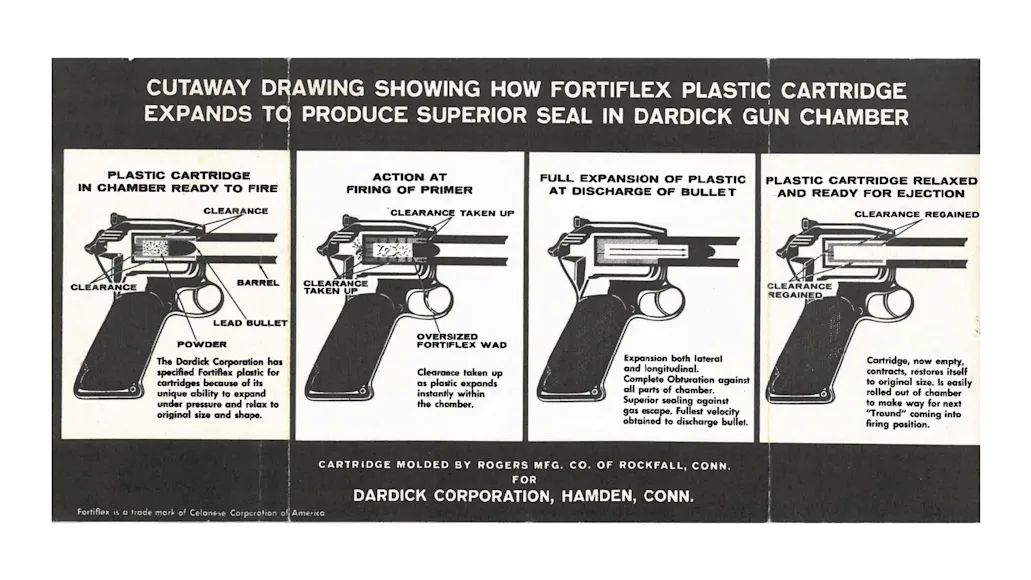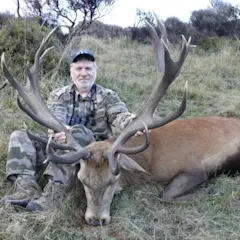_We may earn revenue from the products available on this page and participate in affiliate programs. Learn more ›
_
Some guns are good looking and some are not. The average shooter, if asked to describe why, is often at a loss for words. But ugly is ugly. Here are a half-dozen ugly guns that are an offense to the eye no matter how you slice it.
Ugly Guns Table of Contents
The Dardick Revolver
The FP-45 Liberator
Nambu Type 14
Korobov TKB 0-22PM Experimental Assault Rifle
The FN P90
The Apache Revolver
Ugly Guns: Handguns
1. The Dardick Revolver
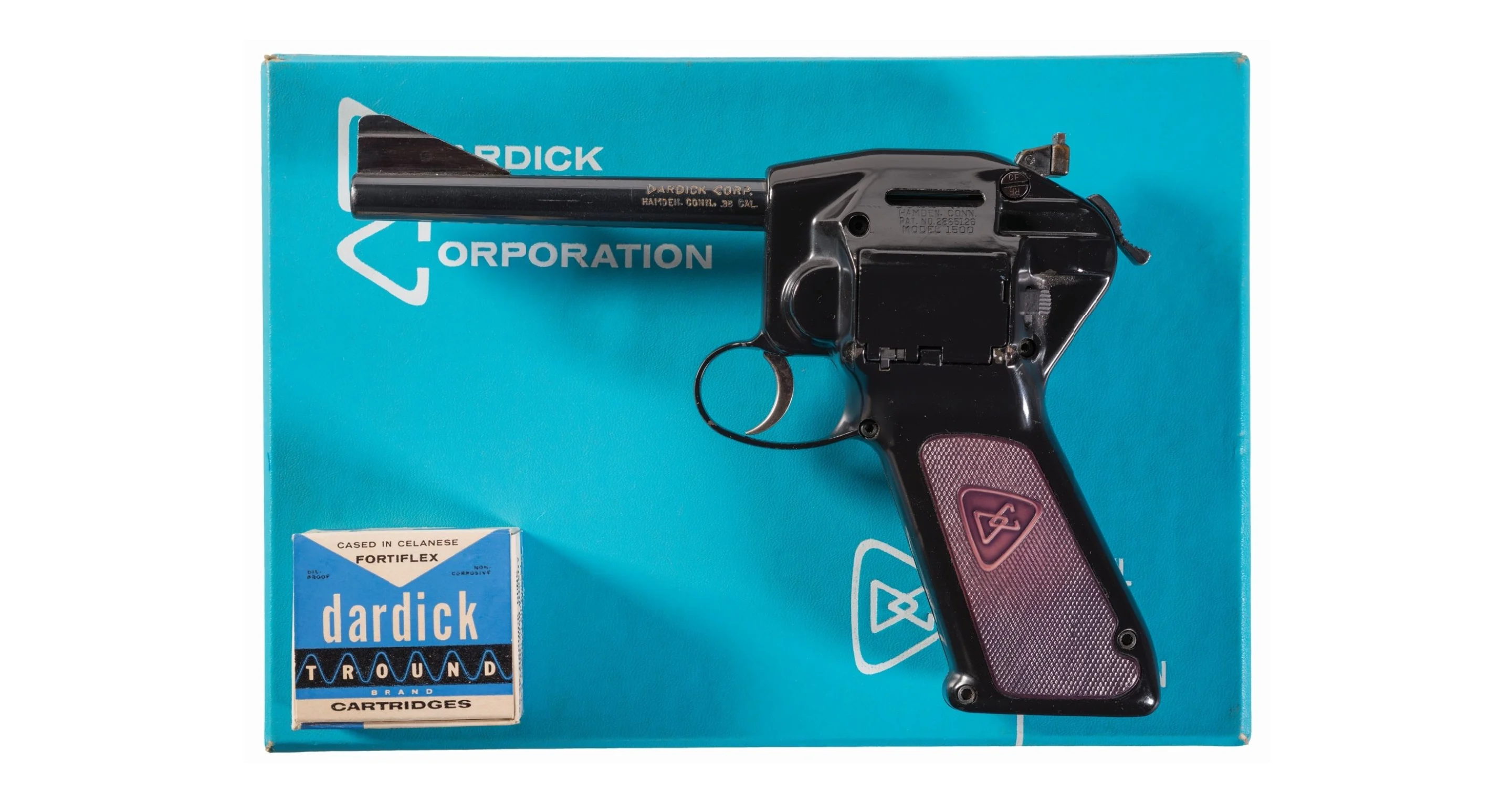
The Dardick Revolver. Rock Island Auction Company
This apparition is vintage of 1958, and is a revolver, even though it looks like an automatic. The cases for its ammunition were made of a high-strength plastic called Celanese Fortiflex, and they’re not round, but formed in the shape of equilateral triangles with rounded corners. “Trounds,” they were called, and were originally intended for use as machine gun ammo because more of them could be packed in a small space than could standard cartridges. This idea didn’t pan out, so the inventor, David Dardick, came up with the idea of a revolver that fed from a magazine.
There were two, the Dardick Model 1100 and the Model 1500. Both were convertibles that could be switched from .22 rimfire to .38 Special, and both were basically the same, except that the former held 11 rounds and the latter 15. You loaded Trounds into the magazine one at a time because the magazines did not detach, and they fed up into a three-chambered open-sided cylinder. When the cylinder rotated into battery, the frame of the revolver closed the open cylinder side. When the cylinder rotated after firing, the case was popped out of the open chamber. If you wished, you could remove the revolver’s soda-straw barrel and snap the action and grip into a rifle stock with a long barrel attached.
About the only rationale for something like the Dardick was the ability to convert from one cartridge to another, and the high magazine capacity. (Remember, this was 1958 when everyone carried revolvers, and the only automatic that held more than seven shots was the Browning Hi-Power.) The Dardick was in very limited production from 1958 to 1960. At the most, so the estimates go, 100 pistols were made. The low end, which is probably more accurate, is 40. The Dardick malfunctioned a great deal, and it looked…odd. So people did not buy it.
2. The FP-45 Liberator
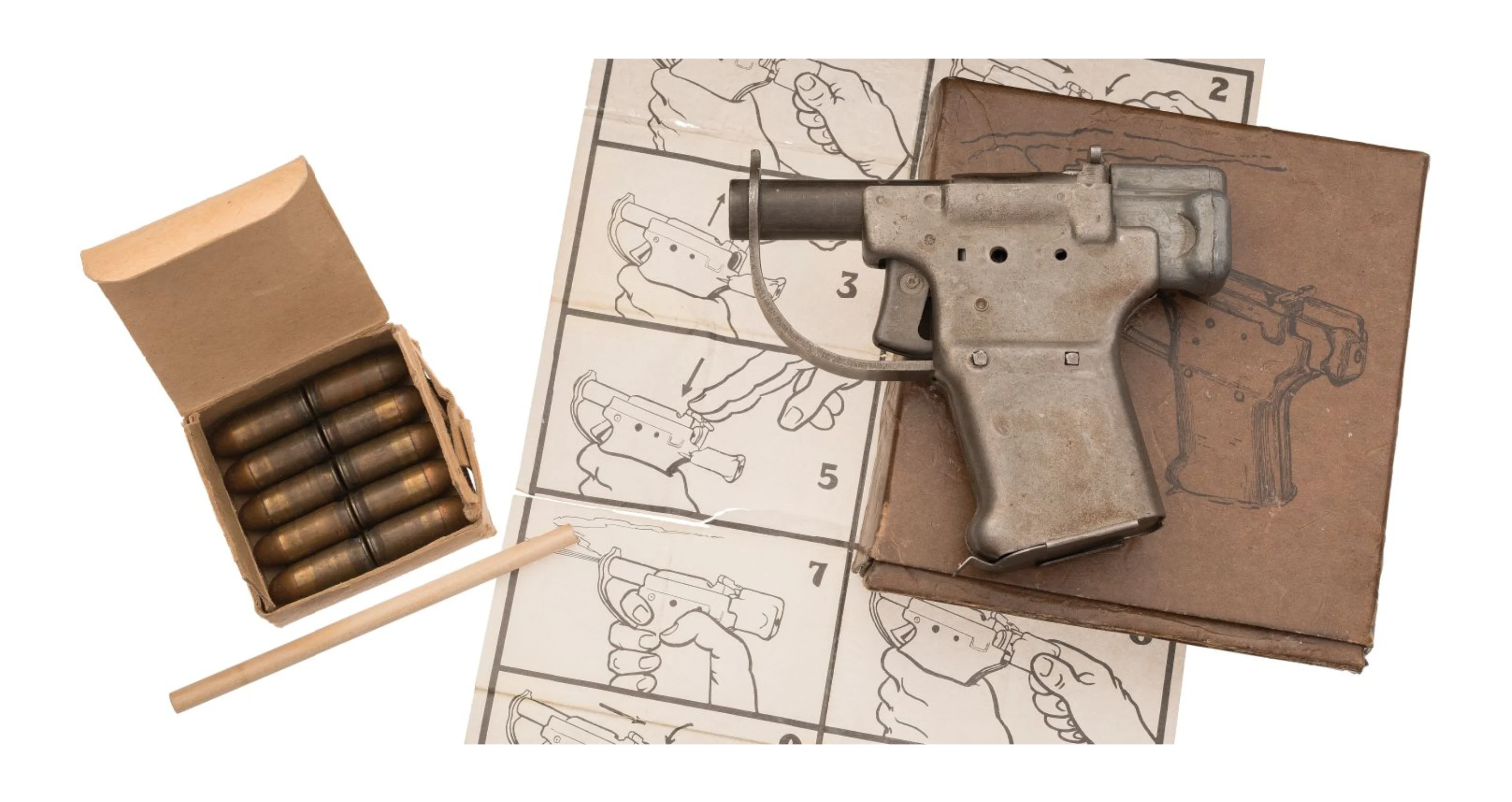
The FP-45 Liberator. Rock Island Auction Company
The Liberator has been described as a piece of junk. It is a piece of junk, but it was made that way deliberately by the Guide Lamp Division of General Motors during World War II. It was a single-shot .45 ACP that was parachuted into France so that Frenchmen who didn’t like being occupied by the German Army could pocket an FP-45, sneak up behind a convenient German, shoot him, and take his gun.
Each Liberator came with a little dowel stick to punch out the shells (it had no ejector). It could store five rounds in the grip, and came with ten .45 cartridges and an instruction sheet that showed how to operate the pistol. The barrels were unrifled, and the effective range was given as 8 yards. A million Liberators were manufactured for $2.10 each. The little guns were made as they were because no one wanted thousands of .45 handguns in the hands of French civilians when the war was over, and the Liberator was guaranteed to fall apart quickly. No one knows for certain how many were actually issued. Probably the vast majority were destroyed at the war’s end. Today, an FP-45 in good condition, in the box with all the trimmings, costs around $6,000.
3. Nambu Type 14
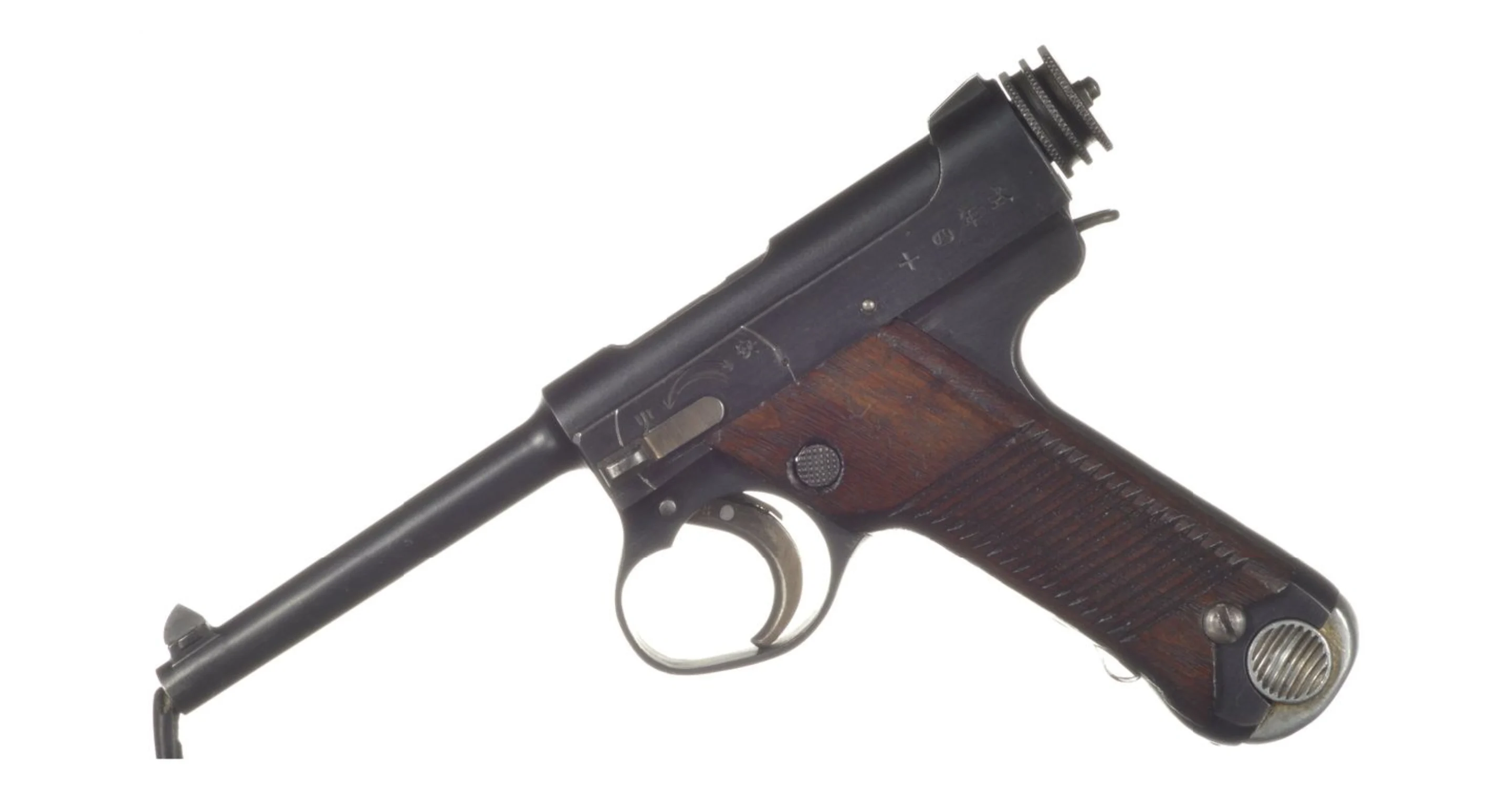
The Nambu Type 14. Rock Island Auction Company
It’s been pointed out that a subtle variation of line, one way or another, can determine whether a firearm is considered good-looking or an inanimate hideosity.
Take the Nambu Type 14, vintage of 1926, which appears distantly related to the Luger, which is one of the handsomest and most iconic pistols of all time
. But the Type 14 is generally ranked as one of the supremely ugly handguns. Japan produced 400,000, and the Type 14 was the principal sidearm of the Imperial Japanese Army throughout World War II. It was issued almost entirely to officers, who had to pay for it themselves, and was considered a mark of prestige and a badge of rank rather than a tool for actual combat.
This was just as well. The Type 14 was chambered for an anemic 8mm cartridge
with half the muzzle energy of a 9mm Parabellum. It was difficult to load. The magazine spring was not strong enough to reliably feed cartridges into battery. The safety was awkward to manipulate. Due to the curiously bashed-in trigger guard, gloved fingers could not find room to fire the gun. If you were not careful, it could discharge accidentally.
So why was the Type 14 not replaced? Because the philosophy of the Japanese Imperial Army was that any shortcomings in its equipment could be overcome by the warrior spirit of its soldiers. Nonetheless, the Type 14 proved adequate for executing prisoners of war and pesky civilians of occupied countries, and assisting in seppuku when the officer involved did not have the courage for decapitation. And it was highly popular among American soldiers and Marines as a souvenir.
Ugly Guns: Rifles
4. Korobov TKB 0-22PM Experimental Assault Rifle
.embed-container { position: relative; padding-bottom: 56.25%; height: 0; overflow: hidden; max-width: 100%; } .embed-container iframe, .embed-container object, .embed-container embed { position: absolute; top: 0; left: 0; width: 100%; height: 100%; }
The brainchild of designer German Korobov (For all you nekulturny types, “German” is his first name, not his nationality.), this experimental bullpup assault rifle was cooked up in either 1962 or 1964 in a project undertaken by the Soviet Army.
No military gives a damn how its weapons look, but this one is pretty awful. It appears as though a private in the Soviet Army was given a box of gun parts and a hammer, and told to assemble the whole mess, and if things didn’t fit, to bash them until they did.
The Korobov employed a plastic housing to contain its steel works. The gun was allegedly very accurate and very controllable on full-auto fire, but was rejected because it contained a great many parts that were fragile, and there were grave doubts about the durability of the stock. So the Korobov was relegated to the scrap bin of arms history.
5. The FN P90
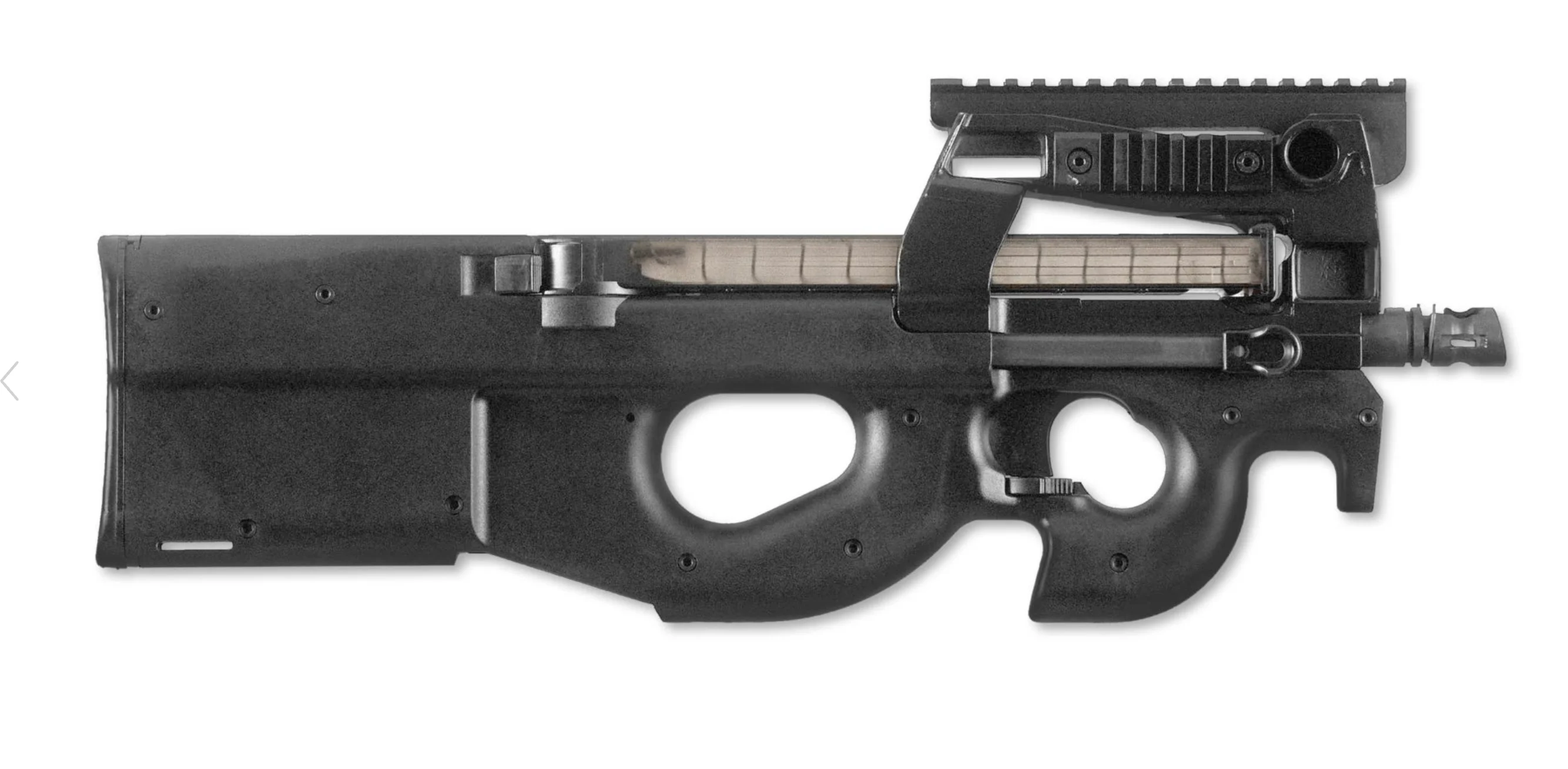
The FN P90. Fabrique Nationale Herstal
This is a selective-fire military-police bullpup that was designed in the 1980s for NATO, and is apparently a successful working firearm. It’s carried by the Belgian military, and has been exported to 50 countries worldwide. The FN P90 fits in a category between submachine guns and assault rifles. It’s chambered for the 5.7mm x 28 cartridge and carries 50 of them in a horizontal magazine above the barrel. The P90 is light, short, completely ambidextrous, polymer-stocked, and fires from a closed-bolt blowback action.
That’s the good news. The bad news is, in the words of Gunnery Sergeant Hartman, it’s so ugly it could be a modern art masterpiece. It looks as though FN might have commissioned Salvador Dali and Pablo Picasso to jointly design a bullpup rifle. And worse, people might not believe it’s a firearm and laugh at it, leading to tragic misunderstandings.
Ugly Guns: Other
6. The Apache Revolver
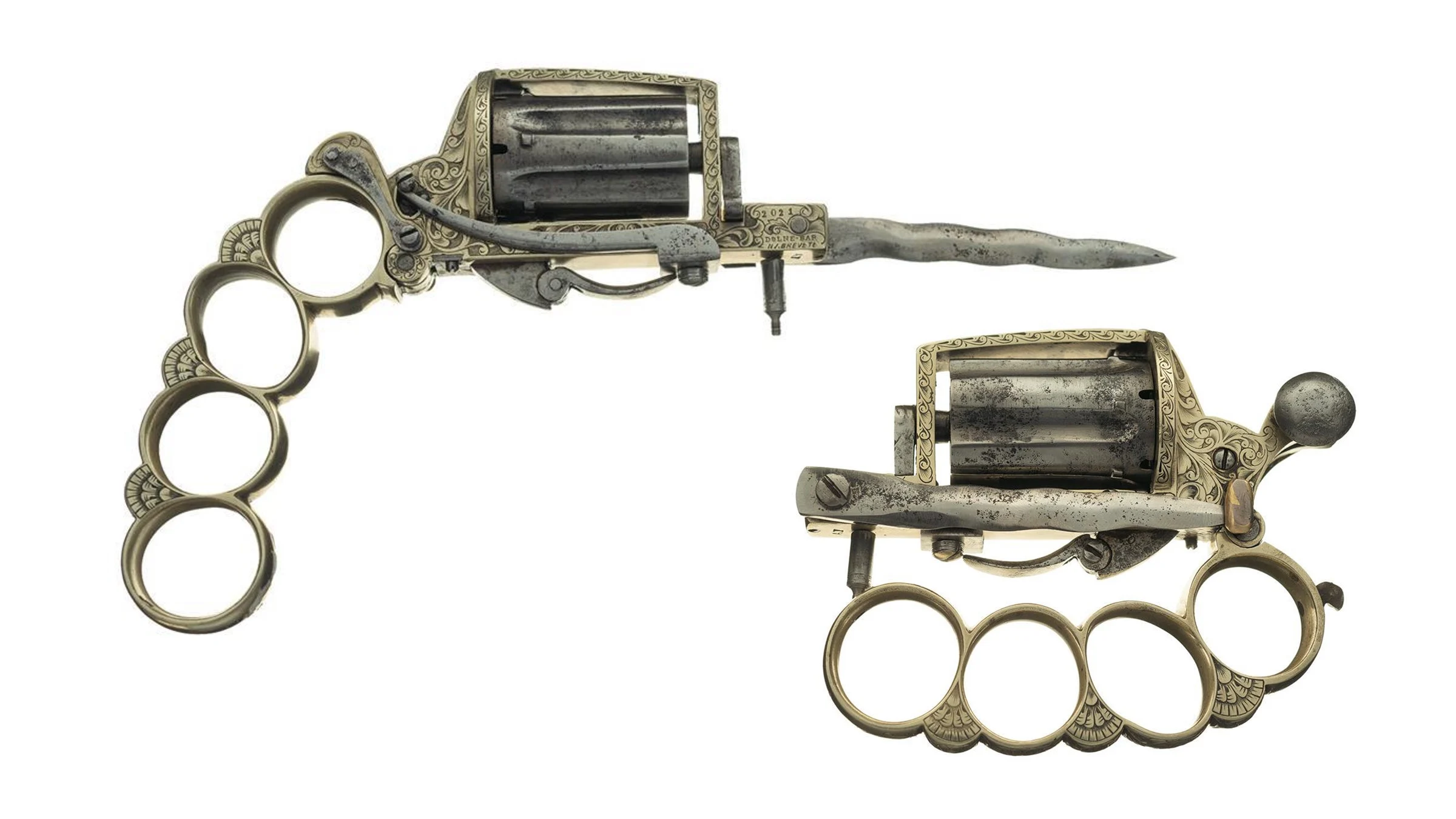
The Apache Revolver. Rock Island Auction Company
This multi-use weapon combined brass knuckles, a fold-out dagger, and a double-action revolver that used 7mm Lefaucheux pinfire cartridges. It was designed by one Louis Doine, and was produced in Belgium for one year, 1869. It had no connection to the Apache Indian tribe. Les Apaches was the name taken by Parisian gangsters in the late 19th century, and this odd piece of machinery was apparently designed for them.
**Read Next: Bizarre Guns: 6 of the Strangest Firearms Ever Made
**
Because there was no barrel, accuracy was probably limited to a couple of feet, but it did work that close in. However, deploying the various mechanical components could be complex and time-consuming, and in the meanwhile, you were likely to catch a fatal kick from a practitioner of Savate, a form of French kickboxing that was developed around the same time, and might just knock your head clean off.

